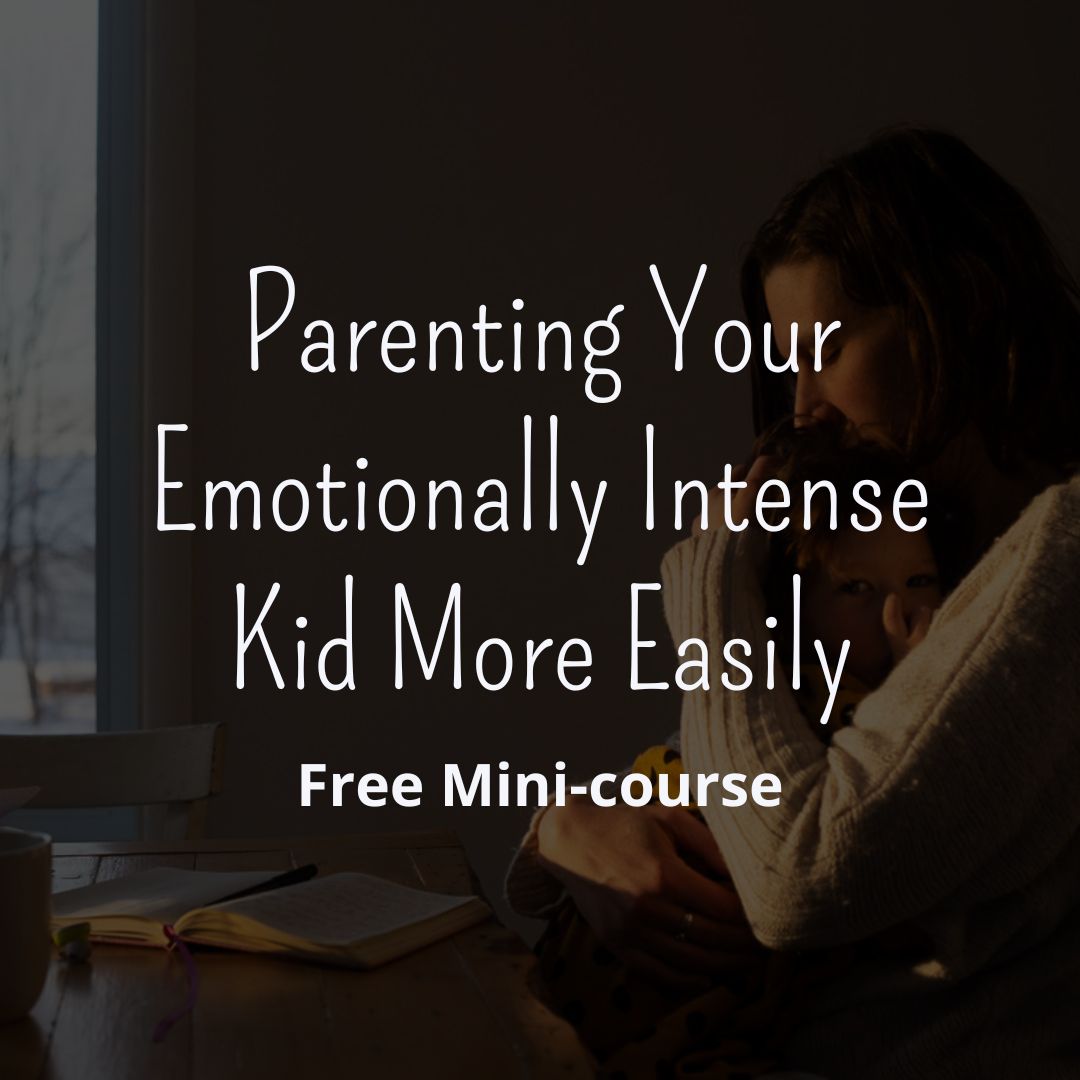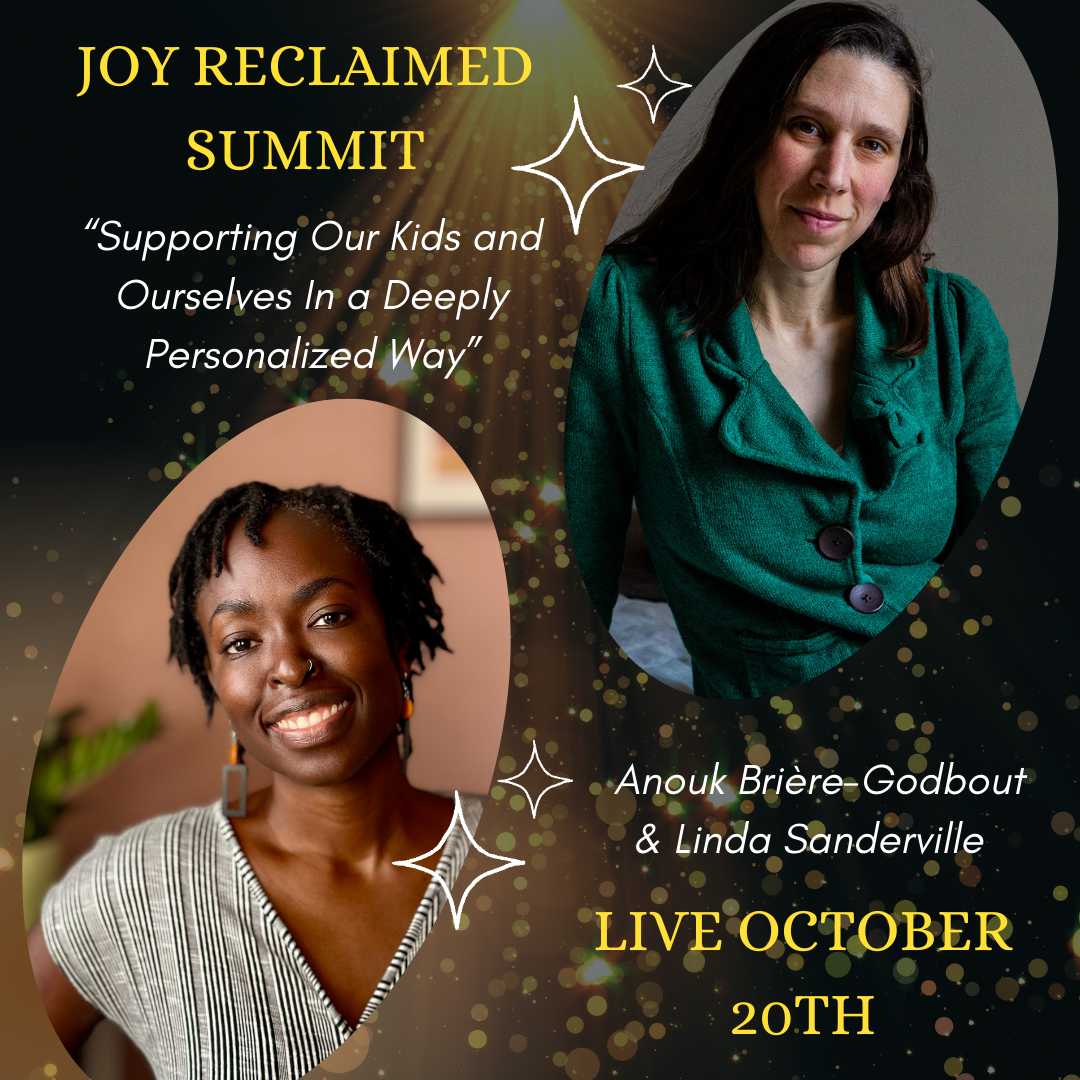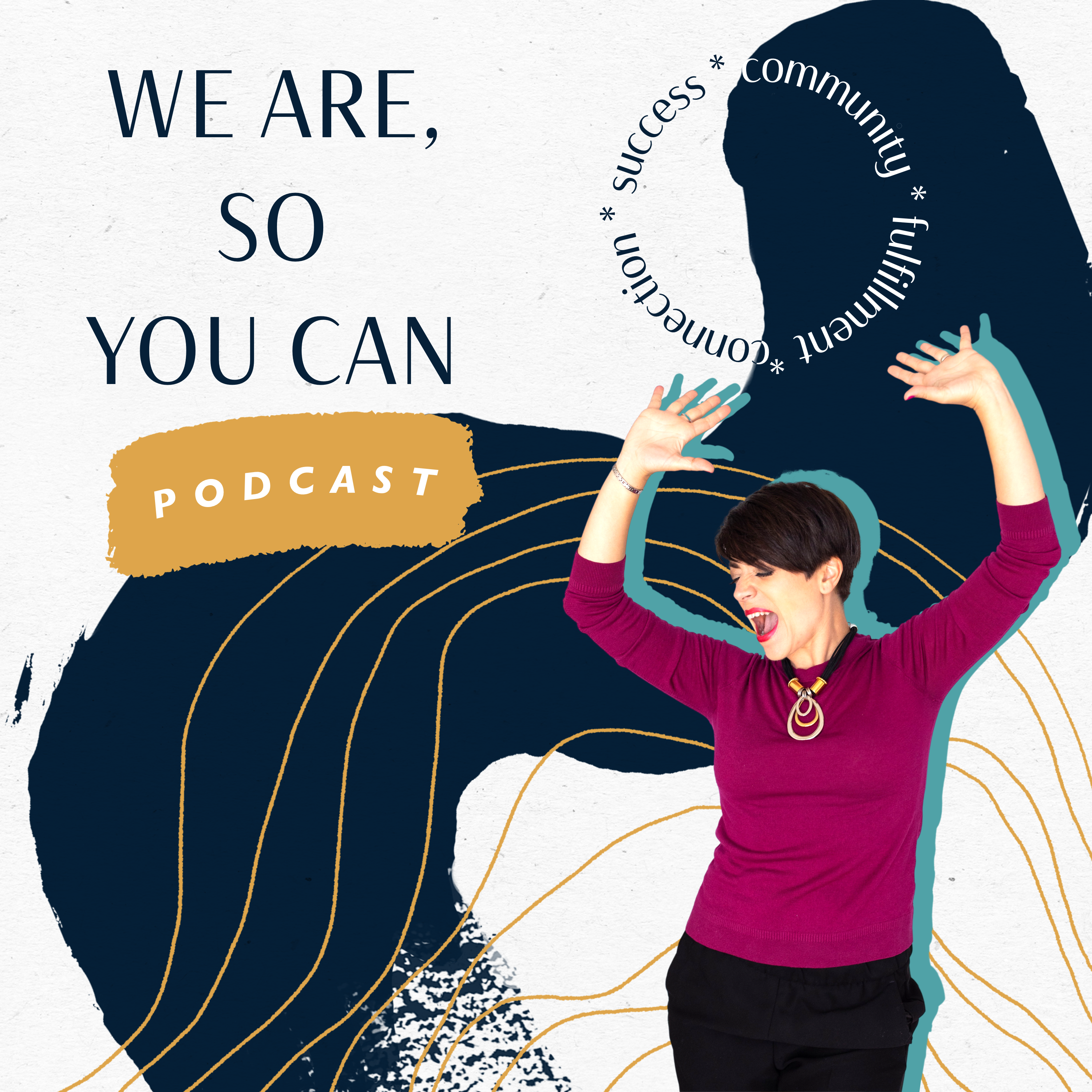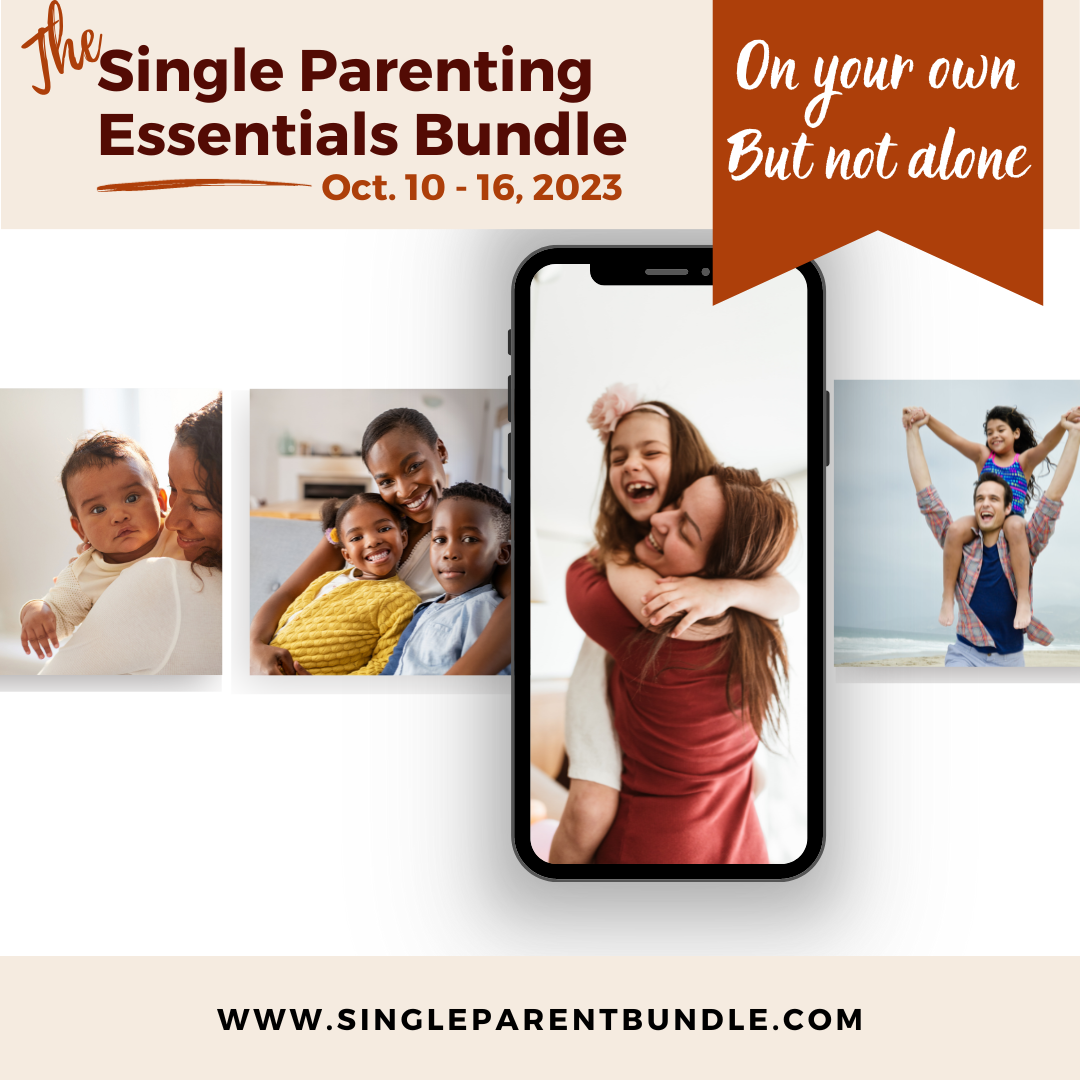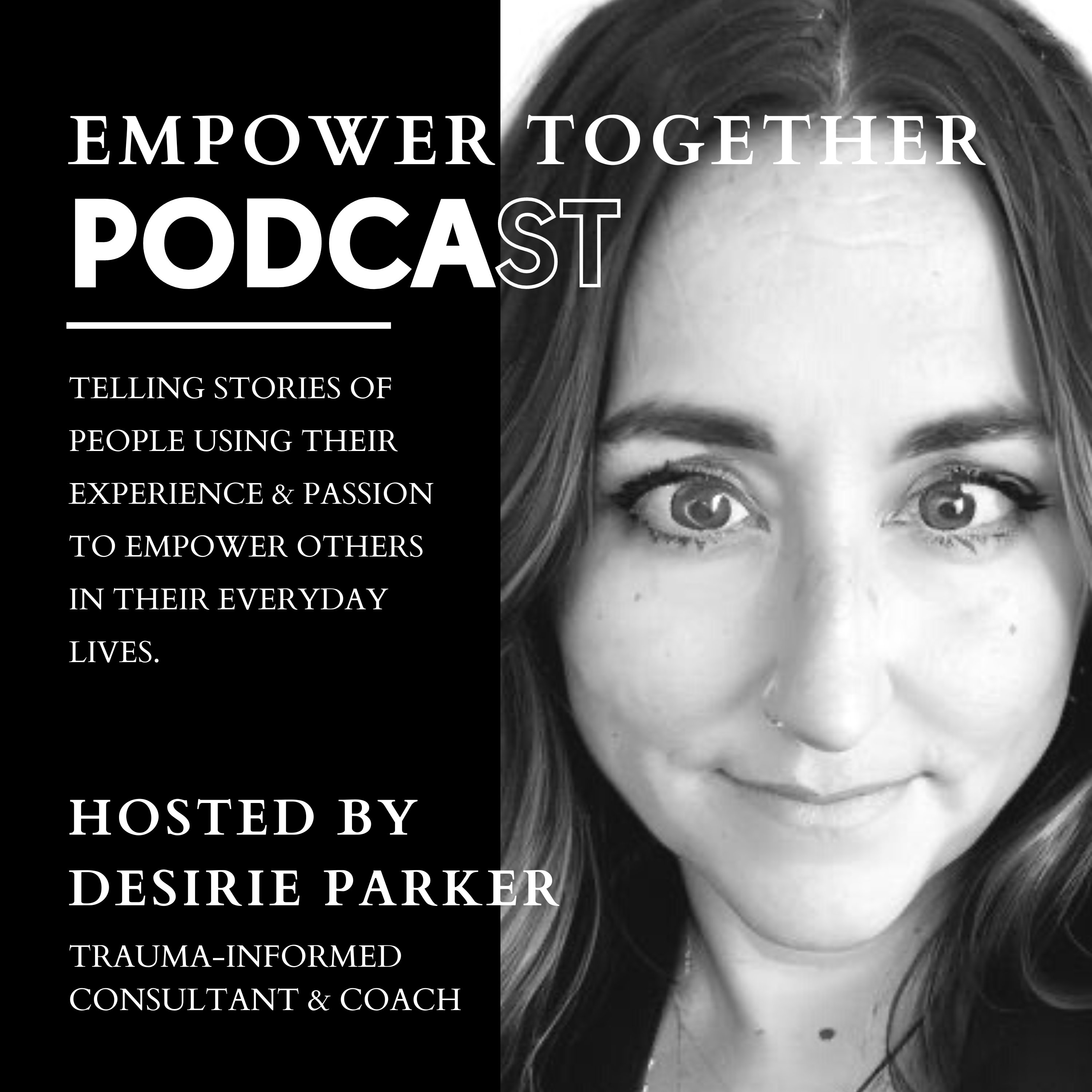Episode 025 show notes
🎙️Food Sensitivities and Intense Behavior - With Elizabeth Yarnell
In this week's episode we have on Elizabeth Yarnell, she’s an award-winning cookbook author, TEDx speaker, and expert in chronic inflammation.
Elizabeth shares a personal story about her son's health struggles, stemming from food sensitivities, and the impact it had on him.
We delve into the link between food sensitivities and children's behavior, learning, and growth, and the misdirection of traditional parenting practices when a child's intense behavior is caused by food sensitivities.
Elizabeth also discusses the concept of hidden inflammation and its role in various health issues, sharing insights from her own diagnosis of multiple sclerosis.
We explore how to identify and manage food sensitivities in children, negotiate dietary changes with kids, and ensure food safety for the entire family.
Join us as we uncover essential strategies for navigating the complex world of parenting intense kids with food sensitivities.
Key takeaways of this episode:
🌿 Understanding the Impact of Food Sensitivities
Elizabeth Yarnell provides valuable insight into the link between food sensitivities and children's behavior, learning, and growth. The episode highlights the importance of considering food sensitivities as a potential root cause of intense behavior or health issues in children, underscoring the impact of diet on their overall well-being.
🌿 Addressing Inflammation as the Root Cause
The discussion emphasizes the significance of addressing hidden inflammation as the root cause of symptoms, especially in relation to children's health issues. Elizabeth emphasizes the need to focus on addressing inflammation rather than solely treating the symptoms, leading to a greater understanding of the importance of a holistic approach to wellness.
🌿 Practical Parenting Strategies
Elizabeth offers practical insights into navigating dietary changes for children with food sensitivities, providing a balanced approach that combines negotiation, delicious and safe food substitutes, and positive reinforcement. Additionally, her tips on identifying safe food items, batch cooking, and freezing food offer tangible strategies for parents navigating food-related challenges.
"We don't necessarily make the connection easily that the kids might just be in pain, and that's why they are acting that way because young kids don't say I'm in pain."
You can stay connected by subscribing to the "Parenting the Intensity" podcast and following us on Instagram @parentingtheintensity
You've got this! Take a deep breath, keep going, we're all in this together!
Resources mentioned on the podcast
Connect with Elizabeth:
The Inflammation Academy (business name) TheInflammationAcademy.com
Elizabeth Yarnell – Individual & Corporate Wellness Programs | Create your healthy reality today.
https://elizabethyarnell.com/inflammationquiz/
Elizabeth Yarnell | Naturopath (@elizabethyarnell_naturopath) • Instagram photos and videos
https://twitter.com/ElizabethYarnel
https://www.linkedin.com/in/elizabethyarnell/
Book: Glorious One-Pot Meals: A Revolutionary New Quick and Healthy Approach to Dutch-Oven Cooking:
Get Your Little Moment,
my weekly email
- Reminding you that you're a wonderful parent, because we don't hear it often enough.
- Giving you permission to do parenting in a way that works for YOUR family and YOUR emotionally intense kids, no matter what that looks like.
- Letting you know about the latest podcast episode.
Full Transcript
*Automatically generated. Will be revised soon to make it more easy to read.
Anouk :
Welcome to Parenting the Intensity, where we'll talk all about how we can drop the general parenting advice that doesn't work with our emotionally intense kids anyway. And let go of the unrealistic expectations society puts on us as parents. Together, we'll find solution and ideas that work for you and your kids. Chances are, deep down, you know what they need. But you need a little encouragement to keep going on other days and permission to do things differently and help you fully trust that you already are a wonderful parent to your exceptional but challenging kids. Today's episode is all about food sensitivities, Which can be one of the cause of emotional intensity. Because when kids are feeling very intensely some discomfort or pain, They can definitely be intense, but not necessarily be able to explain it. And to talk with us about that, we'll get Elizabeth Yarnell, who is upset with, Obsessed, sorry, with inflammation. The hidden kind that is behind almost every symptoms of pain, discomfort, emotion, and dysfunction, and especially those symptoms that characterize autoimmune and other inflammatory disorder, the kind of chronic inflammation that can be challenging for medical doctor to understand and or successfully manage. Based on her career as a traditional naturopath and certified food sensitivity therapist, She founded the Inflammation Academy to empower anyone anywhere to reclaim control over how they feel today and tomorrow through non pharmaceutical lifestyle changes. Her upcoming book explores the connection between chronic inflammation, multiple sclerosis, and other chronic conditions. She's an award winning cookbook author, TEDx speaker, and patent inventor who frequently appears in online summits, on podcast, and on live stages. Elizabeth was recently featured in the strange pin strange pain, sorry, Docuseries alongside luminaries such as doctor Tom O'Brien. On the side, she has taught digital storytelling skills to 1,000 of elementary and middle school Students to online and in person programs. This episode today is a 2 part episode. In the next part, we will, talk more about It's Elizabeth's book that makes what we'll talk about today doable in our busy life.
Anouk:
So welcome. Glad to have you, Elizabeth, today. We'll we'll talk today about some things that can be causing Kids being intense, and it's food sensitivities. And I know from experience myself and a few friends that can change life when you pinpoint, food sensitivities, so I'm really glad to have you over. Would you like to introduce yourself to the podcast community?
Elizabeth Yarnell :
Absolutely. Anouk, thanks so much for having me on your podcast and And introducing me to your listeners. I'm really excited to be here because this is one of my favorite, Should I say favorite? Favorite topics to talk about about really how food sensitivities and our food choices can affect How our kids act and behave and learn and grow and respond to us and really, food sensitivities are an overlooked piece of the puzzle when it comes to parenting and, I know we'll get into it. Even before we started recording, we just couldn't stop talking about this. So, we'll talk about a lot of things and one of the things I want to not To make sure I don't forget to head on is how our parenting and our, especially current parenting practices of consequences for behaviors can be really misdirected when it comes to the intense Child.
Anouk:
For sure. For sure. And if the cause is a food sensitivity, it's just pointless. Yeah. Because we're basically punishing someone to being sick For being sick. Yeah.
Elizabeth Yarnell :
For for something that they can't control because it's it's a chemical process that's happening inside their bodies.
Anouk:
Definitely. So would you like to share a little bit of why you're doing what you're doing?
Elizabeth Yarnell :
Yeah. So, let's see. My parenting journey began with my oldest son and I had this amazing pregnancy that was full of pure whole foods and I was so excited and, and then when I was 9 months My neighbor threw a baby shower for me and I wasn't thinking, and I ate a piece of, of turkey that came from the honey baked ham store, a spiral sliced roll of turkey, and it gave me Listeria. And Listeria is a bacteria that likes to take up residency in the placenta and it can cross through the umbilical cord and it causes stillbirth. So I was Once I realized what had happened, which was after a recall notice in a new the newspaper, I went into the hospital and They pumped me full of IV antibiotics 4 times a day. They made me What's it called? I had to move into the hospital for a week basically so that they could flood me with these antibiotics to try to kill the listeria. And the good thing was is that my baby was not a stillbirth, thank goodness, but he was born and he was really sick from day 1 and you know, as a pregnant person in America, you don't get a lot of Postnatal care for you as a person, the baby gets lots of visits and vaccinations and things like that, but as the mother, You don't really know what's happening and nobody nobody during that time had talked to me about, well, you know, if you flood the baby With antibiotics, you're going to wipe out their microbiome. Maybe we just didn't know about the microbiome
Anouk:
back in the
Elizabeth Yarnell :
early 2000, but he was sick from the get go. He did not sleep for longer than 30 to 40 minute stretches at a time for six years. He would, he would vomit, I don't even know, several times a day and this was beyond babyhood. He didn't stop until we figured this out when he was 6a half. So for 6 years, my son, I still looked at him to say he's a champion vomitor. He can Vomit really anywhere and just kind of move on with his life. And on top of it, he had this Terrible constipation, like really painful. Sometimes the poor child would go 2 weeks between bowel movements and he would just be in continual pain. His stomach always hurt him. He didn't really have the vocabulary as a 2 year old to tell
Elizabeth Yarnell :
us what was going on. In fact, it took me years to really put it together that it was acid reflux that was waking him Every half hour, 45 minutes, none of the doctors could help us. We took him to pediatric GI clinics. We had his His records sent all over the country to gastric specialists. We, did abdominal x-ray to see if maybe there was something physiologically abnormal. There wasn't. We even had his DNA mapped and nothing helped us come to any conclusions. Oh, the other thing that he had that was unusual was he has alachroma and that means that he doesn't make tears.
Anouk:
Oh, okay.
Elizabeth Yarnell :
So You're a mother. You remember, like, in the very beginning, the 1st week or so, babies don't really make tears.
Anouk:
Yeah. But then they start having tears. And then was it just tears or all because I know there's a like, all fluids in the bodies are, like, Sweat and things like that. There there's no fluid at all. Was it that or just tears?
Elizabeth Yarnell :
Just tears. And when he was 10 months old and we were had a baby playgroup one day and I noticed all the other babies had like wet faces from their tears. And I'm like, Wow, We've never had a wet face. I think I was still waiting for the tears to come in.
Anouk:
Yeah. Yeah. Well, it's your 1st baby. You have no idea.
Elizabeth Yarnell :
You have no idea. And so, so he has this thing called alacrimum, and later on, I learned that tears are actually formed Very late in gestation, like in the 9th month, probably. So that might have been something that was disrupted, From this these antibiotics, this intervention that I had, I still think thank God he's alive. He came on alive, but it was very, very tough these early years. He fell off the height and weight charts. He loved to eat, but he would throw up everything he ate. So, he wasn't
Anouk:
When your constipated you don't really wanna eat?
Elizabeth Yarnell :
So he wasn't growing. He wasn't thriving. He had a lot of emotional issues, a lot of temper tantrums. He got in trouble a lot when he started school and preschool, and He was a good kid, he was a sweet kid, but he just couldn't seem would have times when he just couldn't control what was going on in his body, and I would say to him, you need to stop doing that and You need to maybe take yourself up to your room so until you're ready to come down and and interact with people again and and he wouldn't be able to stop and then About 45 minutes later, he would burst into tears and he would say, Mom, I heard you telling me to stop and I wanted to stop, but I just couldn't. I couldn't stop.
Anouk:
Yeah. Yeah. Yeah. I I think lots of our listeners will totally relate to that star kind of story that kids Try, but they just can't calm down. It's out of their control. Yeah. Really.
Elizabeth Yarnell :
Out of their control. And he couldn't figure out like, Sometimes it would erupt in like a rage and sometimes it would erupt in violence and other times it would just be, you know, what we might characterize as misbehavior, you know, or or lack of attention in class, things like that. So It was, it was, frustrating, but for me the worst part was Realizing that if I have a child who doesn't poop, he is not going to live long, because if you don't release the toxins From your body, your body becomes toxic, and that shortens your lifespan.
Anouk:
Oh, I've never heard of that. Okay. Not really encouraging. No. For sure. And definitely troubling when you're a parent and you're trying everything. Clearly, you've Tried everything on all specialists, and nothing works. And it's so disempowering and, like, Discouraging when you're faced with a child that is clearly in pain because you just you cannot not be in pain when you're you're in that situation.
Anouk:
But, Like, also I think the relationship between, the the behaviors and the pain is often overlooked. We don't necessarily make the connection easily that the kids might just be in pain, and that's why they are acting that way because young kids don't say I'm in pain. Right?
Elizabeth Yarnell :
They don't have the vocabulary and they don't realize, you know, what is normal. Like, other people don't feel like that. So, yes, and, it's become so emotionally wrought, right, as a parent to to To witness your child going through this and realizing that you can't help, I mean, by the time we finally figured out what was going on, The only thing I knew for sure was that he wasn't deficient in MiraLAX. Yeah. More and more Quantities, bigger and bigger amounts of MiraLAX were not solving the problem.
Anouk:
No. Was not making poop more.
Elizabeth Yarnell :
Was not making him poop more.
Anouk:
And how did you figure out what was the causing out all of it?
Elizabeth Yarnell :
Well, finally, after one day when he vomited in the lunch line I'm in kindergarten and they called me to take him home and I'm like, I was in the middle of something and I'm thinking to myself, He's fine. He'll vomit. He'll just go back to class. He vomits all the time. You don't understand. But of course, I went and picked him up, and I'm like, this is and he had this terrible stomachache. Of course, he hadn't pooped in days, and and, and I'm like, I don't know what to do. I'm running.
Elizabeth Yarnell :
I have no more ideas, so I thought, well, I'm going to take him to see a naturopathic doctor And I it was hard to find 1 in those days. And I find I found 1 and I took him in and she said, You know, I really think this maybe sounds like food sensitivities and I said, but, you know, he doesn't have anaphylaxis or hives and she said, well, those are food allergies. She said food sensitivities are when foods cause inflammation in the body and it manifests in a lot of different ways. It may not be hives, it may not be anaphylaxis, But a lot of different ways and some of these ways could be what you're seeing with your son and I thought, okay. Well, It's a little pricey to do this test. Of course, insurance doesn't cover anything like this. No. And, but, but I don't this is my last My last hope.
Anouk:
You're desperate at that point. Anything would would do. Like, you're you're willing to try anything, I guess. And I just Gonna stop you for a second. Can you explain just a little bit what inflammation means for people who might not know?
Elizabeth Yarnell :
So inflammation means, what happens when the white blood cells, They are our body's soldiers. Their job, the job of the white blood cells, is to circulate through the body and find any foreign invaders, which typically are virus and bacteria, and then eliminate them. And they do this by by marshaling the body's resources and those 3 resources are, antibodies, which are good against bacteria, heat, which causes fever, which kills viruses. Viruses don't live in high heat and, inflammation. And inflammation basically immobilizes the invaders, So inflammation is we tend to think of inflammation as something visible. For Since when I twisted my ankle in a class and my ankle blew up like a like a grapefruit, like that's a very visible and that that kind of inflammation is the right kind of inflammation. It comes from an injury. It's intended to immobilize the joint to allow that injury to heal and then it recedes and now my ankle is not swollen anymore.
Elizabeth Yarnell :
But the kind of inflammation I'm talking about is what I call hidden inflammation. It's inflammation inside the body. It's not visible necessarily to the naked eye unless you know what you're looking for, but it's mostly lots and, I would say, lots and lots of people. At least 1 in every 3 people are walking around with lots of inflammation in their body and you wouldn't know it, except for the fact that it causes symptoms and really all symptoms are due to inflammation at the So no matter what your symptom is, whether it's constipation or diarrhea or it's eczema or it's, asthma or it's any type of it's really anything that is negative going in the body is due to inflammation. And so once I, figured this out and learned about this with my son. I started learning more about inflammation. I went back to school. I became a traditional naturopath, and really focused my whole career on inflammation.
Elizabeth Yarnell :
This all kind of To go back a little further, a couple years before, 3 years before my son was born, I was diagnosed with multiple sclerosis, which is an inflammatory condition. Mhmm. All autoimmune conditions are based in inflammation. Mhmm. All symptoms are based in inflammation as well, and that's what got me started on on recognizing that inflammation is behind everything and that if we focused on inflammation rather than the symptoms, Then we would have more success because we would we would be addressing the root of the issue, not just what we see on the top.
Anouk:
Or instead of giving MiraLAX, you try to reduce the inflammation. Exactly. Exactly. Instead of like drawing in MiraLAX. Right. Right. Especially if it doesn't work. Right.
Anouk:
So, basically, you were saying, like, you got a test For your son to figure that out? That Yes.
Elizabeth Yarnell :
We need to do 2 Yes. This is what introduced me to the food sensitivity testing world. And, today, you might see a number of food sensitivity tests, but most of them are looking for antibody creation, Which is misleading when we're talking about the customized anti inflammatory diet. So those are a waste of time and money. I would never suggest one
Anouk:
Is the is it the one that is done for celiac disease? Something similar, but So
Elizabeth Yarnell :
that yes. That's a very specific test. And so One thing that you can think about is that, if we're looking for antibody creation in a test, that means you have to have had exposure to that item within a relatively recent time. So for instance, if you were to go and get Someone tested for celiac disease, you would have to make sure they were eating wheat in the 2 weeks leading up to the testing period or else it might not turn out You might not be able to see if there's a problem. Okay. It might not create new antibodies.
Anouk:
Yeah. So, basically, if you want to test for any possible Sting you would need to eat every possible thing you've done in the last 2 weeks, which is kind of impossible.
Elizabeth Yarnell :
Totally. And but and you might feel terrible Because maybe you're reactive to a lot of those things. Yeah. So the test that I use still to this day is the gold standard of food sensitivity testing and it's called the MRT, the mediator release test. And so it looks for mediators instead of antibodies. Now mediators are released by the blood cells in response to what they deem to be a threat, And the most famous meat eater we all know is histamine. We know that if we have a poison iv experience or a bee sting and we take an antihistamine like Benadryl, we can experience some relief from the swelling, which is the inflammation that's causing us pain from that encounter. But histamine is only one of 80 or more mediators can be released by the bloodstream.
Elizabeth Yarnell :
So we don't wanna just focus on histamine. We want to see what, What triggers that those mediators to be released? We don't care really which mediators are being released. They all cause inflammation. They all cause symptoms, so if we can identify Which foods or substances trigger mediators to be released War, in other words, trigger inflammation in the body and we can adjust and create a diet that not only doesn't include those items but only includes items that we know don't trigger inflammation in the body, then we can pretty rapidly, pretty quickly remove inflammation and it's amazing. For my son, once we got this test done and we took the results home and I looked at them and really still to this day I've done hundreds of these tests on people and Is this still the worst? Even if it's reactive to fully 1 third of all the items that we tested And so at first at first, I'm like, okay. Well, this is going to be Jeremy's shelf in the pantry and his shelf in the fridge and the rest of the family, we're gonna keep eating the way we always have. Mhmm. And let me tell you, that leads very quickly to mom mom having a nervous breakdown.
Anouk:
I'm sure. I can just imagine it, like, yep. Not not not gonna happen. So Just making sure everybody everything stays there. Just just starting with that seems like a nightmare, but then having a child eating totally different things than the rest of the family. And if the rest of the family is eating fun things that the child that that's just not gonna happen. Like, it might work for adults. Like, I I have full sensitivities, and I risk for myself.
Anouk:
And even I have some trouble not eating things I should not be eating. You know? So at kids, it's not gonna happen.
Elizabeth Yarnell :
Exactly. Exactly. And I always counsel people, like, you know what? The best thing to do is decide that the whole family is going to follow this diet in solidarity with the child. So every meal is going to be, safe for the child and totally healthy. Nothing's gonna be weird. It might be a meal of like Broccoli, rice, and chicken. Mhmm. If those things are safe for the child
Anouk:
Yeah. It's not the same for everybody. It's really tailored to every Per person food sensitivities, like, there are specific ones. Right?
Elizabeth Yarnell :
Right. But, you know, if the rest of the family isn't In crisis like the child is, they're probably fine with broccoli, rice, and chicken.
Anouk:
Yeah. For sure.
Elizabeth Yarnell :
It's all gonna be
Anouk:
Unless it's their trigger, no. It should it should work for everybody else.
Elizabeth Yarnell :
But, you know and that's, like, a whole another story if you have more than 1 person in the house that is in crisis, but you'll you'll Address them 1 at a time anyway.
Anouk:
Okay. And what would you like, you named a lot of things that your son add. Is there other like, maybe the most common thing to look for or, like, if parents are wondering, does my child mind food sensitivities? What are the the most common or the thing that they should look for and to make them think they should Reach out and find inform more information about that.
Elizabeth Yarnell :
Yeah. So I think what I see most commonly with kids is constipation. Constipation is so common in our modern world with kids especially, so If your kid isn't pooping every day and as a parent, I'm going to say it is imperative you know how frequently your kid poops. There were several years that my son was not allowed to poop without allowing me to look in the toilet before he flushed because he would lie, Right? Because he knew I wanted him to poop because constipation was his issue, so I would I had to look and it actually was a great laboratory experience for me to see what Poop looks like in a constipated body or in an inflamed body and then how it looks when you come down from that inflammation and then how freely it flows when you're not inflamed. But let me say that not only poop but diarrhea. So if you have a kid who has diarrhea or fluctuates between the 2, those are inflammation, headaches, That's inflammation, skin issues, like eczema, psoriasis. That's or
Anouk:
Lots of kids have eczema As the young kids. And would you say, like, those symptoms needs to be there since birth Or close or they can appear anytime?
Elizabeth Yarnell :
Yes. They can appear anytime. As we live on this planet, our gut evolves and our microbiome, is constantly changing and depending on our lifestyle and our history and our environment that will change our gut in many, many ways. Also, parasites are really much more common than we have been led to believe and I work with lots of people, even moms of toddlers, who find worms in their baby's diapers, things like that.
Anouk:
Mhmm. Yeah. Yeah. I've I add that when I not myself, but my sister. When she was young, we had that a few times. It's not fun.
Elizabeth Yarnell :
For a friend.
Anouk:
Yeah. It was not fun, and I had to Take the same medication as as preventive, and it was disgusting.
Elizabeth Yarnell :
Yes. Yeah.
Anouk:
Yeah. I I'm I'm aware, and there was some at my My daughter's daycare recently died, so we had to check for it. It's it's not a fun thing to do.
Elizabeth Yarnell :
No. No. So the parasites can be there or they don't have to be there. There can be a lot of a lot of things that lead up to it, but I think, really, the the most common cause of these issues is probably our Western diet. Yeah. It's our overprocessed foods.
Anouk:
Yeah. There's not lots of vegetable and fruit, like natural vegetable and fruits. And when they're often, they've been picked up not ready. Like, they're still
Elizabeth Yarnell :
Well, not only that. Not only the The, reduction of nutrients in our foods but there are over processed foods. They're full of chemicals and Additives and artificial colors and artificial flavors and artificial sweeteners, all of these things are toxic to the human body. We evolved on this planet to eat and thrive on the foods and animals really that grow here and We were never evolution never predicted that we would start eating things that we dug up from 2 miles underneath the Earth's surface, petroleum, And all of these things are based in petroleum.
Anouk:
True. True. It's definitely like a lot of, yeah, a lot of things that we We're not eating a 100 years ago for sure.
Elizabeth Yarnell :
Right. And if we wonder where a lot of this came from because it didn't exist It's really before the Industrial Revolution. Multiple sclerosis really didn't exist before the Industrial Revolution either, and that was, You know, now it's so so common and becoming more common every day. Over a 1000000 Americans have MS today, Considering in in 18/90, there were none.
Anouk:
Yeah. And, like, I'm I'm always wondering when we talk about that. Like, is it because They didn't know it existed, so they'd never diagnose people, or was it really not existing at all? It's always something I'm wondering there. It's like Or, like, kids with food sensitivities were just dying younger, so we didn't know. Like, is there another like, the situation was different, or do we have, like, Is there a way to test for that in, like, other like, old data to know now?
Elizabeth Yarnell :
Well, certainly, there were physicians who kept records and they kept records of mysterious symptoms in their patients And that's how we can really know then. Before the late 1800, there really weren't records of multiple sclerosis. Okay. There were records of things like celiac disease as far back as the the pyramids in Egypt. On the walls of the pyramids, there were records of them. But they didn't know what it was. No. And the
Anouk:
The symptoms were there in the notes, But they're you. Okay. That's very interesting to see, like, that some of those just appeared at some point in history. It's always
Elizabeth Yarnell :
Well, you know, our world radically We changed with the industrial revolution.
Anouk:
Yeah. Definitely. Lots of We
Elizabeth Yarnell :
started polluting. Right? We started polluting in ways that never happened before. Our pollution used to be cow poop, and now all of a sudden it's smoke and particulates in the air and in the water supply and that we're breathing, that we're eating, and then as soon as we started adding it to our Foods, which is really horrific to think about who started doing that, you know, food dyes, when they were first Brought up before the fledgling FDA in the 1930s, they were sourced from coal. We used coal to color foods and now they're sourced from petroleum and they've really never been adequately tested for, their effect on human health, especially in the amounts that that our kids are getting them. Can you think of I just always think of Froot Loops, Because what is a food that has, like, every food dye in it?
Anouk:
I think the new ones, I I saw recently, they have Natural dyes now, they change colors anyway. Like, they're not the same color they used to be when I was a kid. They're much more, like, pale. And I've read it's not it's not now it's natural food diet. I don't know exactly what that's supposed to mean.
Elizabeth Yarnell :
So there's a whole loophole in the, in the food world where you can call something natural, something like natural flavors. You can say, oh, look at, there's this carbonated water and the only ingredients are water and natural flavors. It must be better for me than soda pop. Mhmm. Except for those natural flavors likely have 30 chemicals inside mixed in this natural flavors label. So, sometimes it's better, but, really, there's so many Examples in so many places everywhere that we're getting food dyes in from our vitamins, from our drinks from our foods that we're eating, in things you wouldn't even think of ketchup and mustard have food dyes and food artificial flavors in them and, just down to the basics of the foods that we're eating: yogurt, I can't even tell you the artificial sweeteners and And artificial flavors and colors in in a regular typical cup of yogurt.
Anouk:
Something that should be healthy to give our children as a snack or as a dessert, like, compared to ice cream, for example.
Elizabeth Yarnell :
Exactly. Exactly. Yeah. So I think a lot of those are the culprits. What's going on in our food supply and I think a big first step is to try to return to a whole foods based diet because If you're eating whole foods and by a whole food, I mean a food that is in the same form as it was when it was Picked off the tree or out of the ground or even off the animal, hasn't been processed, then you have a better Chance of staying away from all of these artificial additives and preservatives that are added into our foods.
Anouk:
Yeah. Yeah. Definitely. And, I I think that's, we'll we'll circle back to that because the first thing that comes to my mind when we think about that is the time that it takes To cook from building gradients when we have little times, we are overwhelmed with our all everything's going on. But think you have you have a resource for that, so we'll circle back to that later.
Elizabeth Yarnell :
Excellent.
Anouk:
I just wanna I wanted to ask, like, do you see Most common food sensitivities. Like, we hear often about gluten and lactose to be, like, the most common one. Is it something that You see in your practice also that if parents are wondering, they could start testing those, for example, or do you think it's not worth doing that?
Elizabeth Yarnell :
So when my son was suffering and I thought, okay, well, let me see. What if I take out take out wheat or dairy or corn or soy from his life. Would he be get better? And I would do that for a week or two, and there wouldn't be any radical changes and so I think, oh well, it must not be that, but when the truth was there were just so many other things that were causing him issues. Some of his favorite foods were causing inflammation in his body like broccoli, lemon, and garlic things that we think are so healthy and that we were so proud of him. His favorite food at 6 years old was broccoli, but it turned out When he ate broccoli, he got constipated, which is kind of the opposite of what you would assume would happen with broccoli.
Anouk:
Yeah. There's a lot of fiber in broccoli,
Elizabeth Yarnell :
So what I've learned is that constipation really has nothing to do with fiber. It really doesn't have anything to do with hydration. The things that we think and that we're told are solutions for constipation. If it's a food sensitivity chew and there's inflammation going on in the colon Mhmm. That's not gonna be solved with more fiber.
Anouk:
So that that's Fiber would be the answer for someone who do would not have a balanced diet and not enough fiber, basically, but not with
Elizabeth Yarnell :
I don't think extra fiber is ever the answer. I think the answer is whole foods, not extra fiber. You know, again, we did not evolve. Our ancestors did not have to eat extra fiber to poop. Nope. We shouldn't have to eat extra fiber to poop either. What I've realized is that When there's constipation, it's because there's inflammation in the colon and if you think about the colon, it's like this long tube and if you think about like a Tube that we take in a swimming pool, that maybe we might blow up an inflatable tube,
Anouk:
but
Elizabeth Yarnell :
when we blow it up, like the outside of the tube gets thicker as the air gets in it and there's still like a a hole in the center like a doughnut, but as you blow it more and more and more, that hole gets smaller and smaller and smaller because they're so it's so puffy on the walls, and that is what happens in our colon. And so when we reduce Those walls, deflate and become more normal sized and now you have a hole that poop can come through. But when they're they're inflamed and they're so puffed up with inflammation, You can't fit anything through there. Okay. It doesn't matter how much fiber you have. Once I had given my 6 year old 6 XLACs Wow. Where's and he still didn't poop. He just got scent of poisoning.
Anouk:
Yeah. Yeah. That's not good.
Elizabeth Yarnell :
That was before I realized what was going on. Right? Yeah.
Anouk:
And you said that some of his favorite food, basically, you had to take out of his diet. How did that go?
Elizabeth Yarnell :
So so this is one of the strategies I teach in my clinic when I work with kids is Make a deal with your kid, depending on how old your kid is, right? If your kid is 3, they're just going to eat whatever food you have in the house and you give them, present them with. They can't go out and buy their own Pop Tarts or anything, but if they're older, then, like my 6 year old, then you can negotiate with them and reason with them and so I always suggest, making a deal. Look, we're going to try this or and I look ahead and see what holiday is coming up in about a month or two. We're going to try this through Thanksgiving. Mhmm. And if by the time Thanksgiving rolls around, you're the same as you are now, then we're gonna say this didn't work, and we're gonna have huge feast and we're gonna eat all the foods that you haven't been able to eat and we'll figure it out by then and if just gonna make it to Thanksgiving, and then I also believe very strongly in bribery. Right? So I'll buy you this video game And, you're gonna agree to
Anouk:
Definitely not inside. Like, I I I always prone, like, motivation from Inside. But for something like that, there's no motivating a child from their from themselves. Like, it's not something that they will be motivated to do. Like Well ask them to
Elizabeth Yarnell :
They don't know.
Anouk:
Yeah. Exactly. They cannot understand it for even like, I I can say that I've been I know for I've been known for a lot of time that my Older one is, sensitive to dairy. That for me, that's clear. And he's used to when he's sick, we we take dairy out of his diet and it Alps. So that's been easy, but I'm pretty sure gluten isn't in is a problem too now, but that's another story. It's a team, and he doesn't wanna try and take that out of his diet.
Elizabeth Yarnell :
So the other the other strategy is you have to provide A good replacement, something that is delicious and a worthwhile substitute. So that, that might mean that you have to do some experimental baking and cooking. I have a whole database that I use within my clinic and I offer my, clients that of cookies and cakes and pies and treats because, first of all, a life without treats is a sad life. Yeah. Tell me. Right. I want to have a cookie too and I know I canit eat the wheat and I donit want to go through my life feeling like I can never have a cookie again, But I can whip up a batch of my hazelnut flower cookies and they're delicious and they're cookies and they're all safe for me. They don't cause me inflammation, Mhmm.
Elizabeth Yarnell :
Because I know exactly what's in them because I made them.
Anouk:
Yeah. So the idea is not to take everything out of the diet, but to replace With some things that are safe, basically.
Elizabeth Yarnell :
Exactly. Exactly. Because I certainly don't want To raise a generation of children who feel deprived all the time because if you feel deprived, then you binge Yeah. When you have exposure.
Anouk:
With the diet culture that we have. It's People, like, are depriving themselves, and then they eat too much. So it's a cycle that never ends, and that's not what we want with the kids, especially if they're gonna binge things that Makes that sick.
Elizabeth Yarnell :
Right. And then, you know, rewards are great too because, like, even for myself, if I put on some weight and then I take it off, I might reward myself with a new dress.
Anouk:
Makes sense.
Elizabeth Yarnell :
Yeah. Right? There's nothing wrong with rewards and there's nothing wrong with incentives and And, honestly, bribery too can help kids.
Anouk:
Yeah. Definitely. It's a it's a motivation. Like, you cannot have the The broccoli that you love so much, not sure lots of parents would say that, but and did you find that kids Crave the food they're insensitive to or not necessarily?
Elizabeth Yarnell :
You know, sometimes kids will crave the things they love. Sometimes they'll hate the things they're sensitive to and they've been forced to eat it or they're just assumed That this is what they should eat. Yeah. But it's very hard on your own to make correlations between
Anouk:
Yeah.
Elizabeth Yarnell :
What you eat and how it made you feel, because food sensitivity reactions can take up to 4 days to manifest. So sometimes it's not what you ate this morning. It's not what you ate yesterday. It's what you ate the day before the day before yesterday.
Anouk :
Oh, interesting.
Elizabeth Yarnell :
Really interesting. That can be kind of tough without some guidance and support to figure that out and certainly Impossible for a kid to make that connection.
Anouk:
That's for sure. Definitely. And did you find that once kids are on that diet And may like and it makes them feel better for a little while. Is it easier to keep them on the diet?
Elizabeth Yarnell :
Oh, yeah. Because once you the hardest part is the beginning when you're, like, trying to figure out, okay, well, is this safe for my For my kid or now to my whole family, right, is this is this food item safe? And you'll read all the way through all the ingredients and you'll get to the last one. You're All but past that one thing that we can't have. Like, okay, well, I guess this isn't okay. And then, but once you figure that out and you figure out the brands and you figure out the Stores where you can purchase those brands, it becomes easier Mhmm. And yet less time consuming. And then there's all kinds of, you know, shortcuts that you can do. You can bake things in batches and freeze them so that you don't have to bake cookies every week, but you can pull out a batch of frozen ones
Anouk:
and Because nobody has time for for that.
Anouk :
I'm so glad you joined me today and took that time out of your intense life to focus on finding a new way to parent that works for you and your kids. To get the episodes at Student Day Drop, make sure to subscribe to the podcast. And please leave everything in review so other parents can find it too. Also, check out all the free resources on my website at family moments dot ca so you can take action on what's the most important for you right now. And take a deep breath. Keep going. We're all in this together.


